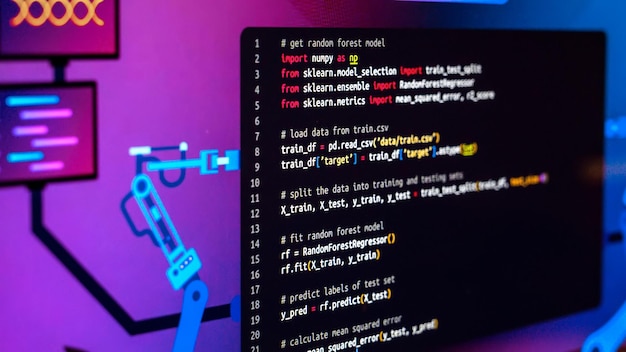Have you ever encountered a tangled web of JavaScript code that seemed more like an enigma wrapped in a puzzle? Fear not, for in the vast realm of web development, there exists a mighty tool known as the “JS Deobfuscator”! This article is your guide to understanding what a JS deobfuscator is, how it works its magic, and why it’s an essential ally for developers navigating the complex landscape of JavaScript.
A JavaScript deobfuscator is a tool or program that is designed to remove or decode specific obfuscation techniques that have been used to make it difficult to understand, modify, or debug JavaScript code. These techniques can include methods such as renaming variables, functions, and keywords, as well as using invisible or misleading names, comments, or strings. Some examples of JavaScript obfuscation techniques are uglification, encryption, and compression.
If you are looking to deobfuscate JavaScript code, there are several online and offline tools available. One option is https://deobfuscate.io/, which provides a simple and useful JavaScript deobfuscator that can remove common obfuscation techniques such as minification, variable encapsulation, and string scrambling. Another option is https://deobfuscate.relative.im/, which is an all-in-one JavaScript deobfuscator that uses multiple techniques to clean and deobfuscate your code.
Additionally, https://gitlab.com/ben-sb/javascript-deobfuscator provides a comprehensive and powerful JavaScript deobfuscator that includes several useful features, such as static analysis, control flow analysis, and more.
When choosing a JavaScript deobfuscator, it’s worth considering the specific needs and requirements of your project, as well as the level of expertise and resources you have available. It’s also important to ensure that the deobfuscator you choose is based on a reliable and validated technique, as some deobfuscators can introduce further bugs or vulnerabilities into your code.
Table of Contents
ToggleDemystifying JS Deobfuscator
What is a JS Deobfuscator?
At its core, a JS deobfuscator is a superhero among web development tools, wielding the power to unravel the intricate knots of obfuscated JavaScript code. Obfuscation is the practice of intentionally making code more difficult to understand or reverse-engineer, often employed by developers to protect their intellectual property or deter unauthorized access.
How Does it Work?
Imagine a treasure map written in a language only decipherable by the most cunning of minds. That’s essentially what obfuscated JavaScript resembles. However, armed with a JS deobfuscator, developers can transform this cryptic map into a clear set of directions, guiding them to the hidden riches within the code.
The process typically involves analyzing the obfuscated code to identify patterns, keywords, and structures that hint at its true purpose. Through a series of transformations and optimizations, the deobfuscator gradually unveils the code’s original intent, making it readable and comprehensible once more.
Why is it Important?
In the ever-evolving landscape of web development, JavaScript remains a cornerstone language for creating dynamic and interactive web experiences. However, with great power comes great complexity, and JavaScript codebases can quickly become convoluted and challenging to decipher, especially when obfuscated.

Here’s why a JS deobfuscator is crucial for developers:
- Enhanced Understanding: By deobfuscating JavaScript code, developers gain deeper insights into its functionality, enabling them to troubleshoot issues more effectively and optimize performance.
- Security Analysis: Obfuscated code can be a breeding ground for security vulnerabilities and malicious exploits. Using a deobfuscator, developers can uncover hidden threats and fortify their applications against attacks.
- Code Maintenance: In collaborative development environments, deciphering obfuscated code is like trying to untangle a mess of Christmas lights. A JS deobfuscator streamlines the process, making code maintenance and debugging more manageable for teams.
FAQs: Unveiling Common Queries
Q: Can’t I Just Manually Deobfuscate JavaScript Code?
A: While it’s theoretically possible to manually deobfuscate JavaScript code, it’s akin to unraveling a tangled ball of yarn without scissors—you’ll likely end up frustrated and tangled yourself! JS deobfuscators automate the process, saving time and sanity.
Q: Is Deobfuscation Legal?
A: Absolutely! Deobfuscating JavaScript code for the purpose of understanding its functionality or improving security is entirely legal and widely practiced within the development community. However, it’s essential to respect intellectual property rights and refrain from using deobfuscation for unauthorized purposes.
Q: Can Deobfuscation Break Code?
A: In rare cases, aggressive deobfuscation techniques may inadvertently alter the behavior of JavaScript code, leading to unintended consequences. However, reputable JS deobfuscators employ cautious approaches to minimize the risk of breaking code while still achieving optimal clarity.
Q: Are There Different Types of Deobfuscators?
A: Yes! JS deobfuscators come in various flavors, ranging from standalone tools to integrated features within comprehensive development environments. Some focus on specific obfuscation techniques, while others offer broader capabilities for analyzing and optimizing JavaScript code.
Conclusion: Unveiling the Power of JS Deobfuscator
In the dynamic world of web development, where JavaScript reigns supreme, navigating the labyrinth of obfuscated code can be a daunting task. However, armed with the mighty JS deobfuscator, developers can fearlessly unravel the mysteries hidden within, transforming chaos into clarity and confusion into comprehension.
So the next time you encounter a tangled mess of JavaScript code, remember the power of the JS deobfuscator—it’s not just a tool; it’s your trusty sidekick in the never-ending quest for code mastery and web wizardry! Happy deobfuscating!



+ There are no comments
Add yours